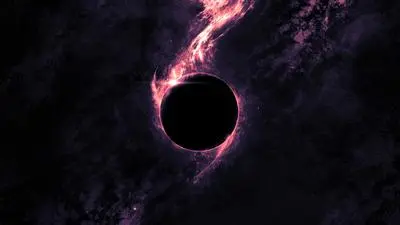Why The World Does Not Exist
Markus Gabriel
About the Course
The world might not be what you think. The world has never referred just to the space between heaven and earth, our planet, or the portion of it that we can see and touch. The world is a concept that describes the sphere in which everything exists. The problem is it might not exist itself.
In this course, Professor Markus Gabriel takes a tour de force of metaphysics, ontology, and epistemology, from ancient myths, to the pre-Socratics, to Kant, Frege, and Wittgenstein, to explore ideas of existence, reality, and being - why they fail, and what it means.
By the end of this course, you will have learnt:
- Why unicorns might have ‘being’ even if they do not exist.
- How ideas about reality in ancient myth have continued through our language.
- How ancient philosophers first tackled the problems of being and existence.
- A history of ideas about the world - from ‘the totality of objects’ to ‘the domain of all domains’.
- Why we need to believe in a ‘monistic’ reality.
- How Ontological Pluralism and Ontological Realism might be combined to create a new theory.
- Why we should reject metaphysics and embrace the non-existence of the world.
As part of the course, there are in-video quiz questions to consolidate your learning, suggested further readings to stimulate a deeper exploration of the topic, discussion boards to have your say, and an end-of-course assessment.
About the Instructor
-
Markus Gabriel
Markus Gabriel an internationally acclaimed philosopher and holds the Chair in Epistemology, Modern and Contemporary Philosophy at the University of Bonn. He is the Director of the Center for Science and Thought as well as Chairman of the International Centre for Philosophy NRW.
Course Syllabus
-
Part One: Coherence and UnityWhy are we driven to search for unity in nature? Can we account for reality without being consistent?
-
Part Two: The World and ExistenceWhat does it mean for something to exist? If the world does not exist, what does?
Suggested Further Readings
Contemporary Works
- Gabriel, M., Why the World Does Not Exist, trans. Gregory S. Moss, (Cambridge: Polity, 2015).
- Gabriel, M., Fields of Sense: A New Realist Ontology, (Edinburgh: Edinburgh University Press, 2015).
- Meillassoux, Q., After Finitude: An Essay on the Necessity of Contingency, trans. Ray Brassier, (London: Bloomsbury, 2008).
- Harman, G., Object-Oriented Ontology: A New Theory of Everything, (London: Penguin, 2018).
- Badiou, A., Being and Event, trans. Oliver Feltham, (London: Continuum, 2005).
Classical Sources
- Homer, The Iliad and The Odyssey (for mythic cosmologies and early accounts of the world).
- Parmenides, Fragments, trans. David Gallop, (Toronto: University of Toronto Press, 1991).
- Plato, Timaeus, trans. Donald J. Zeyl, (Indianapolis: Hackett, 2000).
- Aristotle, Metaphysics, trans. W.D. Ross, (Oxford: Oxford University Press, 1998).
- Kant, I., Critique of Pure Reason, trans. Paul Guyer and Allen W. Wood, (Cambridge: Cambridge University Press, 1998).
- Frege, G., The Foundations of Arithmetic, trans. J.L. Austin, (Oxford: Blackwell, 1980).
- Wittgenstein, L., Tractatus Logico-Philosophicus, trans. C.K. Ogden, (London: Routledge, 1922).


